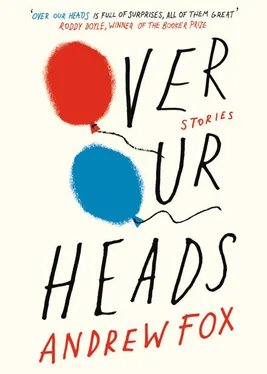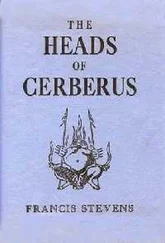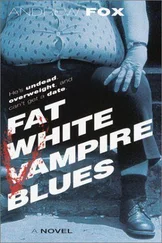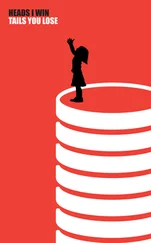‘Isn’t this great?’ Dani said.
‘It’s something, all right,’ I said.
Our room — a twin; the place was without suites — had exposed rafters, a floor that sagged in the middle, a TV bolted into a cabinet and greying doilies laid beneath the glasses on the bedside table. Through the window I could see the low roofs of the Claddagh hunched together, before them boats beached on sand and shale as their like had been for centuries, and beyond them the roiling darkness of the ocean stretching, stretching.
Dani seemed uninterested in exploring Galway, so I went out for dry burgers and oily onion rings and brought them back to the room. We ate watching a restaurant-transformation show as the holler and yelp of the bar downstairs rose to rattle our window. Dani studied her materials while I drank two scotches from the minibar. Later on, we changed into our pyjamas one by one in the bathroom and brushed our teeth side by side at the mirror. I turned off the light and lay in the dark listening to the crowds outside whittle down to a lone drunk singing a monotonous chorus. Eventually he sang himself out and the murmur of the river seemed to rise to fill the silence. Dani whispered:
‘Dad, there isn’t much of your stuff at home, is there?’
‘What do you mean?’ I said.
‘Well, Mom has pictures and stuffed animals and stuff like that from when she was a kid. And that goofy Chat Noir poster from her dorm. And her guitar. I mean — mementoes. I mean your things. But you don’t have any things, you know? I was thinking about this outside your mother’s — my grandmother’s — house. It’s sad.’
I levered myself on to an elbow and squinted to see Dani’s face. She was lying on her back staring at the ceiling, the horizon of her nose and chin aglow in the street light.
‘Why, really,’ I said, ‘do you want to come to school here?’
‘Did you know,’ she said, ‘that Brooke got into Harvard? With a full ride?’
Elaine’s niece was a year older than Dani and a science whiz, who had spoken at nine and a half months but wet the bed until middle school.
‘Yeah,’ I said, ‘I think I heard that.’
‘And did you know that Stacey D’Albertino’s older sister is on a Fulbright doing fresco restorations in Siena?’
‘Did your mother tell you this?’
Dani shuffled on to her side and tucked her hands beneath a cheek. I wanted to tell her that she shouldn’t compare herself to other people, to reassure her that she had all the time in the world — but three years was a long time to be away from home, and those years would lead to others that eventually would amount to a life. Dani would renounce parts of herself, and seldom notice when other parts changed. Who would she be, I wondered, when she was done here?
I tossed and turned all night on the hard mattress and gave up at first light. I showered quietly, dressed in the bathroom and went out, leaving Dani undisturbed. In the lanes off Abbeygate, soapsuds ran in gutters and people slept on kerbs. Men unloaded kegs or pallets of bread from the backs of trucks. I wound around by the quays and ordered coffee from a kiosk. The barista was a studenty type with auburn dreadlocks and a heavy gaberdine toggled against the morning chill.
‘In town for the festival, is it?’ she said.
‘No,’ I said. ‘My daughter’s looking at colleges.’
‘I see,’ she said as she passed me my cup. ‘And what part of the States is it you’re from? I’ve a brother over in Philadelphia. Are you anywhere near there?’
‘Sometimes,’ I said. ‘We’re not too far away.’
I brought my coffee to a bench by the waterside and sat to watch the boats. Tacking rang against masts in the wind and seagulls ran surveillance. I took out my phone and mapped the route to the university, mapped on a whim the distance back to Elaine. Then I followed the quays back to the hotel, where I shared an elevator with a trio of golfers in bucket hats and windbreakers. One read from a guidebook with a Midwestern twang. He dwelled on words like ‘authentic’ and phrases like ‘time immemorial’. I wondered what my daughter’s take on that vocabulary would be, what any of those words might mean if she heard or spoke them.
The room smelled of sleep, coffee and burned toast. I found Dani sitting cross-legged on her bed tapping her iPad and eating an apple.
‘I was hungry,’ she said and fixed the glasses on her nose. ‘I didn’t know where you were, but I got you some things anyway.’
On a cart by the TV, two trays held a baker’s basket, a dish of preserves, a picked-over fruit salad and a plate with a plastic lid. I took the plate to the desk and uncovered a stack of fried meats and a halved tomato shining in a slick of fat.
‘Do you know,’ Dani said, ‘how they make black pudding? It’s really an interesting process. First —’
‘If it’s all the same to you,’ I said, ‘I’d rather remain in the dark. What are you writing there?’
‘Thoughts.’
‘Care to share them?’
‘Nope.’
She pushed the iPad aside and laced her fingers between her toes. Her toenail polish had chipped. I cut and speared a sausage.
‘Then let me ask you this,’ I said. ‘Just now, in the elevator —’
‘Listen,’ Dani said, ‘about today. And don’t be mad.’
‘Mad?’
‘I was thinking, maybe, of not going.’ Her mouth opened, closed. ‘It’s just — I feel like I have all the information I need already, is all.’
I wiped my lips and pushed my plate away.
‘But you haven’t even —’ I said. ‘And after we’ve driven all this way?’
‘I know.’
‘Is there something you want to tell me?’
Outside, hoarsely, someone started up a verse. A guitar rasped into life a half a beat behind it.
‘Oh, for God’s sake,’ Dani said. ‘I’ve had it up to here with all these fucking sad songs.’
I crossed the room and sat on the edge of her bed. She stared into her lap, hair covering her glasses. I brought my ear down close to the mattress and looked up into her face. She laughed but her eyes were dull.
‘Are you mad at me?’ I said.
‘Mad at you? Why would I be?’
My daughter drew her knees up to her chin and stared out the window. I followed her gaze over rooftops, past chimneypots, along the pier and westward, out over the sea.
Martin Cleary, in suit and tie, carried two takeaway coffees across the square. The morning was fresh and bright — suitably collegiate, Martin thought. The water in the canal basin shimmered as it only ever did before noon.
Ronan rose from the bench by the door of Martin’s apartment building and accepted with two hands the cup his father offered.
‘Get that down you,’ Martin said.
Ronan raised the cup to his lips. He was freshly showered but his hangover showed in red eyes half-screened by a curtain of lank hair. On his feet were a pair of motorbike boots he swore would not appear in the photographs. One of Martin’s dark suits hung loosely from his shoulders.
‘Good night, then?’
‘I think so.’
‘It was good to be able to put you up. Less so to be woken at three in the bleeding morning. Where were you?’
‘Haven’t a breeze.’
‘You drink too much.’
‘So do you.’
‘Maybe,’ Martin laughed. ‘But I’m too old to change.’
They set off together down Pearse Street, Martin leading and Ronan looking around him at the collage of broken-down pubs and new sandwich shops that made this part of Dublin.
‘Have you spoken to her yet this morning?’
‘Texted. But I’ll ring her when I leave you.’
‘Did you tell her you’d missed your bus?’
‘Yeah.’
Читать дальше












